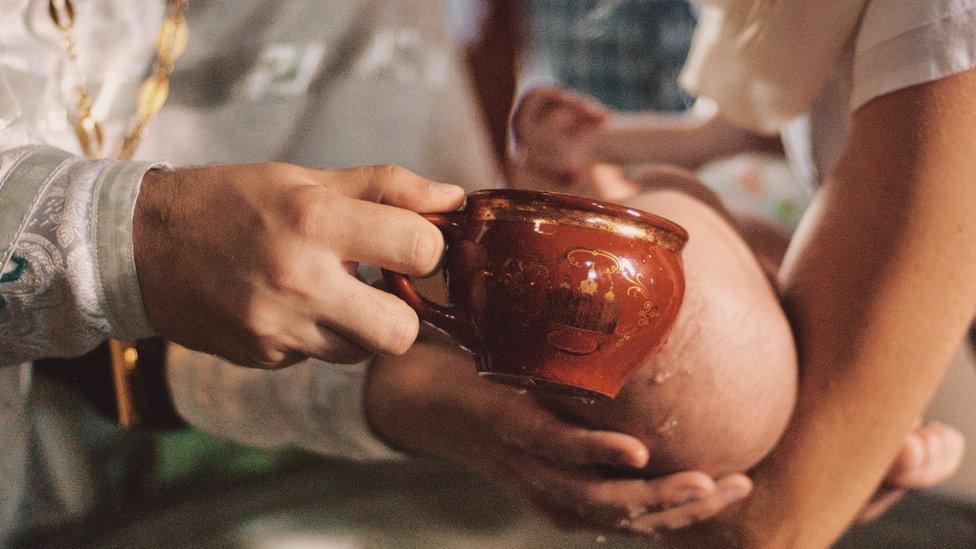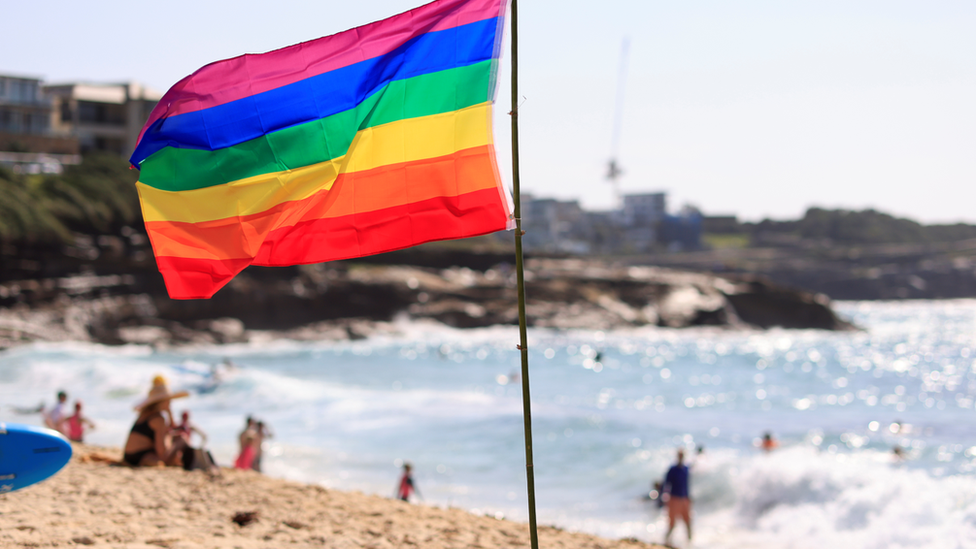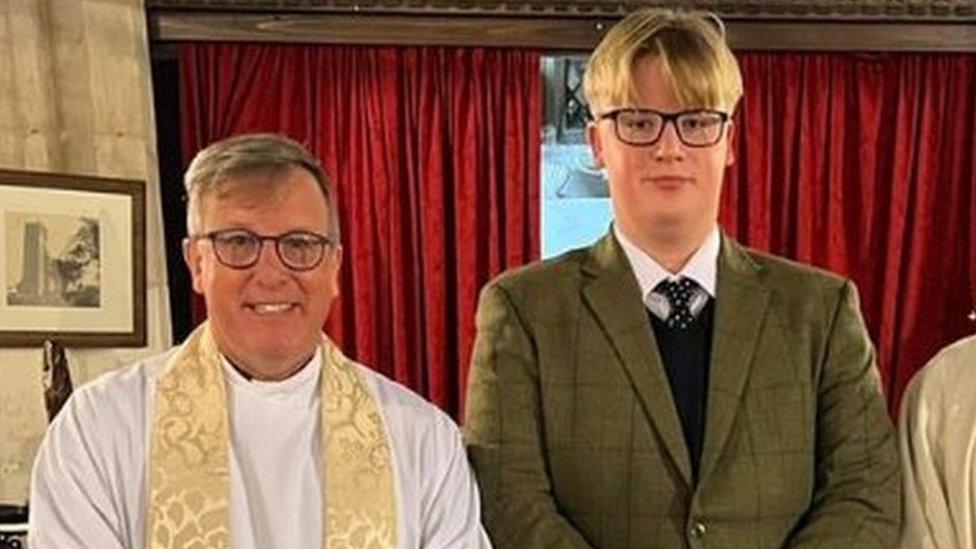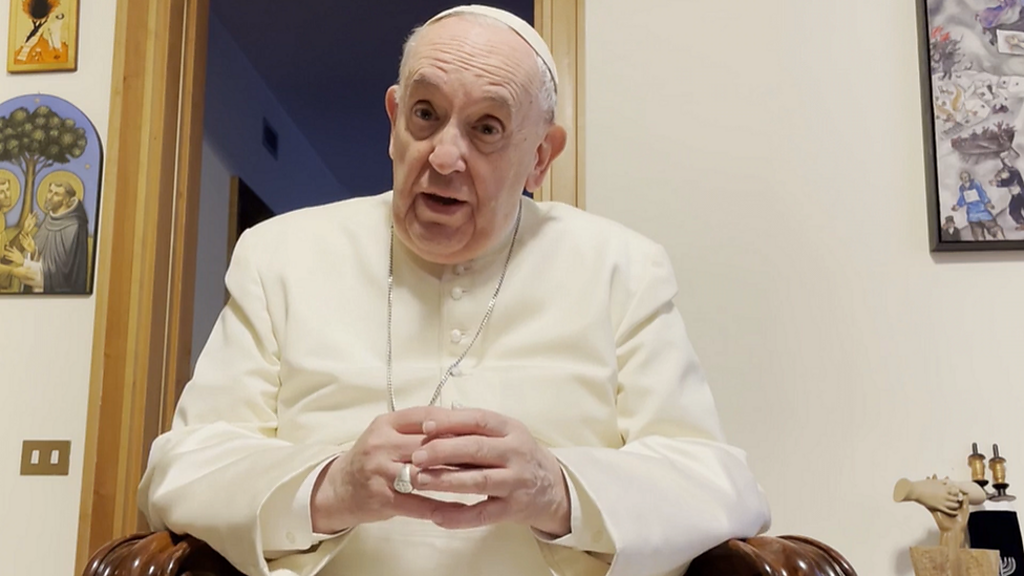One-word gaffe invalidates thousands of US baptisms
- Published

A Catholic priest in Arizona is learning the hard way that "words matter" after a one-word gaffe forced officials to invalidate thousands of baptisms he conducted over many years.
Church officials say that the priest, Andres Arango, used the word "we" instead of "I" during baptisms.
Catholics believe that only Jesus Christ has the power to baptise - not the wider community or the Church.
Mr Arango has resigned from his position and apologised.
According to the Catholic Diocese of Phoenix, Reverend Arango was reciting the words used for baptisms incorrectly until 17 June 2021. The Church has declared all baptisms he conducted up until that date invalid.
Church records show that Mr Arango arrived in the Phoenix area as a pastor in February 2013. Previously, he was the director of a Catholic campus ministry in California. Between 1995 and 2000, he was a teacher and pastor in Brazil.
It is unclear how many baptisms are now considered invalid, although local media has put the figure in the thousands. Church officials are asking that people who were baptised by Mr Arango or had their children baptised come forward.
At the centre of the controversy is Mr Arango's use of the word "we" instead of "I" in the phrase "I baptise you in the name of the Father and of the Son and of the Holy Spirit".
In a letter to local Catholic churchgoers, Phoenix Bishop Thomas Olmstead said that a "careful study" of the words conducted by local officials, in consultation with Vatican officials in Rome, had led them to declare the baptisms invalid.
Deepak Sarma, a religious studies professor at Case Western Reserve University in Ohio, told the BBC that in religion, individual words can be "powerful" and "transformative".
"In this case…when the word 'we' is used, it seems to imply there's a community of worshippers doing the baptising," he explained. "The Catholic Church teaches that when a person baptises, it's really Christ who is working through that person."
The use of the words "I" or "we", Professor Sarma added, "causes or doesn't cause the transformation that is intended".
"If you say it incorrectly, the person who is intended to be baptised is not transformed," he added. "If they go along and proceed as Catholics and have other sacraments in the future, it is all based on the fallacy that they were, in fact, transformed."
In a letter posted online, Mr Arango apologised for "using an incorrect formula" and resigned from position, while at the same time vowing "to help remedy and heal those affected".
The Catholic Church believes that baptism is a prerequisite for salvation. In the Bible, Jesus is baptised by John the Baptist and tells disciples that "no one can enter the kingdom of God without being born of water and spirit".
Professor Sarma said that baptism - like rituals and activities in all religions - form a key part of religious identity, and in this case, "makes someone into a Catholic person".
"Different traditions, whether Catholicism, Judaism or Hinduism, all have different patterns that you need to follow to become a fully authentic Catholic, for example," he said.
"These are rites of passage, and you have to undergo these initiation rites in order to become a fuller human being."
Speaking to local media, churchgoers who knew Mr Arango expressed sympathy for him.
"I don't think in the slightest it was something he did on purpose," Evelyn Ortega, a woman whose child's baptism is now invalid, told the 12 News channel.
Related topics
- Published9 February 2022

- Published2 February 2022

- Published31 January 2022

- Published30 January 2022
